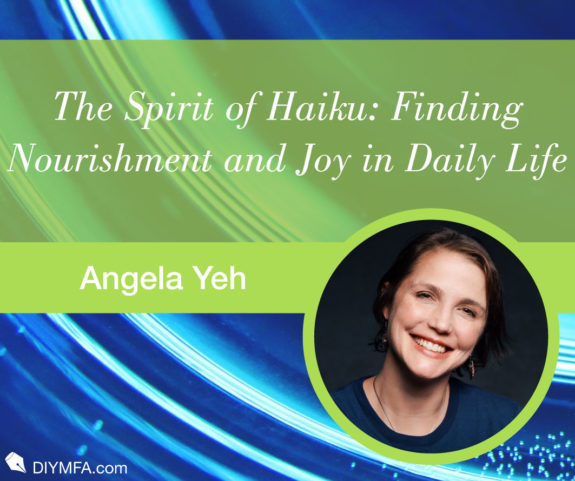I love a crisp new…anything, don’t you? Like a fresh new dollar bill, a chocolate bar wrapper still tucked snug against the corners, and don’t even get me started on the stiff, unyielding spine of a brand new book. There is also the comfort of a folded dollar you’ve saved, the crumbs on the wrapper after you’ve finished, and of course, the thrill of finding someone else’s notes in a used book you’re reading.
Last year taught me to be content with the good memories, and to be grateful for those who were with me in the low moments. 2021 was, for me, a year of adapting, of being flexible and taking things as they come, to let go of the way I thought things should be.
This year my focus is on rituals, nourishment, and slowing down. I want to celebrate the simple joys each new day brings. I am learning I can’t control anything except my own breathing, and what I choose to focus on. And that’s okay. That’s enough.
Haiku as Self Care
In that spirit, for the month of January, I focused on the Japanese poetry art form of Haiku. If you’ve never heard of Haiku—it is a type of short-form poetry. Traditional Japanese Haiku usually consists of three phrases that contain a kireji, or “cutting word” that either finishes the poem or when used in the middle cuts the stream of thought. It is usually in a 5, 7, 5 syllable pattern.
But don’t get too caught up in the rigors of the form. Haiku is meant to be enjoyed like a good sake. On its surface, it is a simple and humble celebration of the ability to focus on the present moment. And then there are layers, meanings that float up to you out of the darkness of your own mind like a shimmering flash of gold from the depths of a Koi pond.
For me, reading Haiku is a form of self-care. A retreat from the world of fast and loud and over-stimulation. Even in the middle (hopefully the end?) of this pandemic, I think everyone feels overscheduled and overcommitted from time to time. Reading Haiku is a great way to give yourself a small bubble of stillness, even if you’ve got young kids around and it is never actually silent. (I hear you stay-at-home-parents.)
Three Simple Lines
Here is an example of a wonderful and ancient Haiku poem from Masaoka Shiki that is now one of my favorite translations:
Peeling a pear –
a trickle of sweet juice
along the blade
Thank you to Natalie Goldberg whose book, Three Simple Lines – A Writer’s Pilgrimage into the Heart and Homeland, this translation is taken from. Half poetry, half memoir, this book has got me sending the kids to Walmart with their dad so I can sit down and read just a few more pages the way this book was meant to be read: gratefully, in stillness, in the quiet reflection of solitude.
Sitting alone now, after all of the holiday hubala has faded and the guests have gone home (and the kids are at Walmart with their dad) and the decorations are put away for another year—this book, these poems, are what my heart needed. I am comforted and at peace, my haywire-holiday brain aligned and focused on the three simple lines. The rest of the world falls away.
I am not exaggerating when I say Natalie’s insights into writing and reading Haiku have changed how I see the world. Everything is Haiku now. The mug of tea steaming in the sunlight, the dog curled up at my feet. You don’t need a master’s degree or a writing technique to memorize to do this. You just need stillness, and the courage to experience profound moments of joy (or grief) in everyday scenes.
Putting the Spirit of Haiku into Action
Usually, at this point in the article, I go on to talk about the other books I am reading but I’m not going to do that this time. I am going to honor my focus for the year, which is to slow down, self-nourish, be present, do one thing at a time. Breathe in, breathe out. Read the next three lines.
All you need for this self-care ritual is a pot of tea and a couple of Haiku poems.
How are you going to take care of yourself better this year? What rituals or books are you looking forward to opening for yourself?
Tell us in the comments: How are you going to put the spirit of haiku into action?

Angela Yeh hails from Atlantic Canada but lives and works in Texas – after her liberal arts degree she wandered into Corporate America but managed to escape. She is a staunch advocate for writers and literacy/learning with her online writing community at DIYMFA.com. She lives with her husband, two lovely human children, and two cranky fur babies. You can check her out on Twitter and Instagram or on her website.







